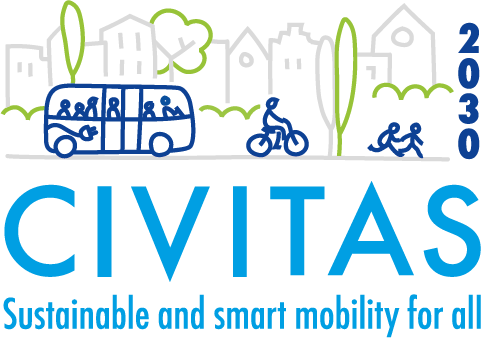
News
Part 2 - 'Streets for All, Mobility as a Right & School Streets' Webinar Write-Up
21 March 2025
In this second part of our “Streets for All: Mobility-as-a-Right & School Streets” webinar write-up, we explore Lyon Métropole’s approach to redesigning public space and streets around middle schools to enhance safety and inclusivity for teenagers.
The presentation from Lyon Metropole started with an overview of the municipal governance structure and how this plays a role in public space planning. Since 2020, the City of Lyon has been responsible for primary school buildings, whilst Lyon Metropole focuses on the areas around middle school buildings and related programmes. In addition to urban planning, Lyon Métropole oversees mobility and street design in these areas, with a primary goal of improving the shared use of public space to make it safer, more comfortable, and more accessible for children, while addressing long-term environmental, climate and health concerns.
A Data-driven Approach to Safety
Lyon’s approach to redesigning school streets is driven by a commitment to improving safety, particularly for teenagers. An analysis of accident data revealed that teenagers—who make up about 8% of the city’s population—are involved in 8% of all accidents, with a staggering 60% of accidents being pedestrian-related. Notably, 68% of the accidents are in middle school surroundings (121 locations). To further make clear the linkage, the analysis showed a much higher incidence rate during school opening hours and days, with 57% of accidents occurring e in the city centre despite only 48% of schools being located in the Metropole territory.
The ‘Streets for Children’ Initiative
When it comes to implementing a ‘Streets for Children’ approach, Lyon has already made significant progress, already working on this across the 200 schools. The plan was to carry out something similar for teenagers. It was soon made clear that there were no existing guidelines or literature about ‘Streets for Teenagers’, and so Lyon Metropole developed its own framework for this. In 2022, Lyon launched a large-scale field survey to identify the key issues impacting safety and public space usage around middle schools. Four main themes emerged from this survey:
- Mobility: Access to public transport, biking and walking routes, as well as creating greater autonomy for students
- Security: Enhancing road safety and preventing accidents
- Neighbourhood: Encouraging varied use of space throughout the week
- Image: Addressing the influence of competition between institutions on image and use of space.
Co-Creation with Teenagers
Something that Lyon Metropole understood as holding great importance, was to consider the quality of experience for the teenagers. In this way, it became no longer just a question of redesigning streets to make them safer, but also about inclusivity and how welcoming they were for the children. Involving the pupils has helped to integrate their needs into the planning process, ensuring that, amongst other things, privacy, autonomy, citizenship and career orientation needs have been met. Examples of where co-creation has been a success include the creation of a fresco outside one school, which highlights the city’s cinematic history, as well as the creation of an ‘urban forest’ with benches for the young people to chill on outside of another.
“Safety comes through comfort and social surveillance”
Looking ahead, the work in Lyon continues to make progress, with more than 110 interventions planned by 2026. The REALLOCATE pilot team is also developing tools to catalogue the achievements of the ‘Children’s Streets’ initiative and creating a methodology for replicating this approach in over 56 other municipalities. Additionally, a comprehensive guide will be produced for evaluating the effectiveness of the children’s streets approach across 18 locations. In the future, Lyon plans to evaluate and compare the ‘Streets for Children’ approach with its ‘Safer Middle Schools Surroundings’ strategy.
All news

This project has received funding from the European Union’s Horizon Europe programme under grant agreement No. 101103924. Views and opinions expressed are however those of the author(s) only and do not necessarily reflect those of the European Union or the European Commission. Neither the European Union nor the granting authority can be held responsible for them.


REALLOCATE is a project under the CIVITAS Initiative, an EU-funded programme working to make sustainable and smart mobility a reality for all, and contributes to the goals of the EU Mission Climate-Neutral and Smart Cities.
